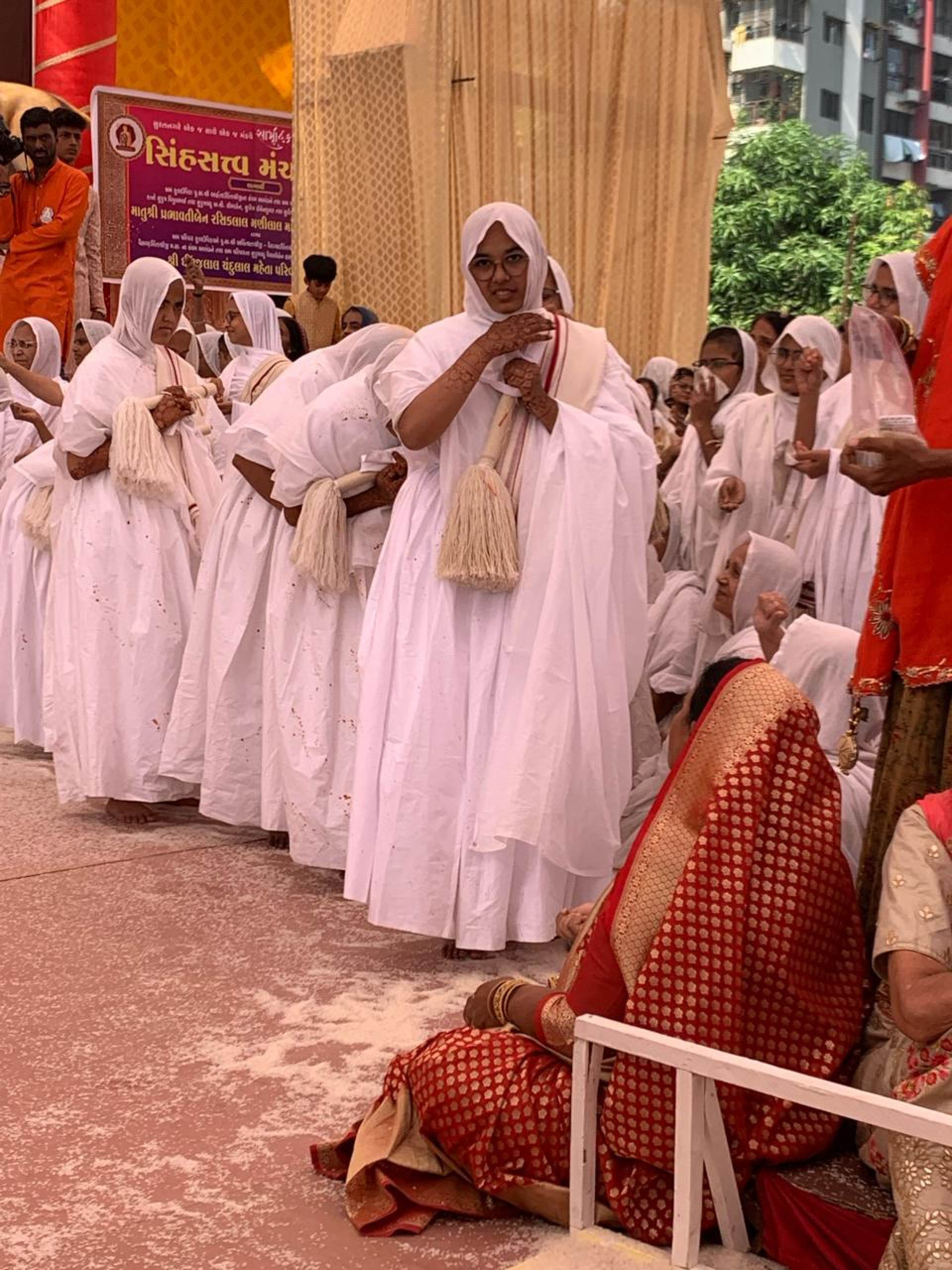Their only possessions will be two white robes and a white broom, which they will use to sweep insects out of their paths.
The couple will give up their belongings to undertake deeksha, a Jain renunciation ceremony, to be mendicants for the rest of their lives. Jainism is a minority faith with an estimated 4.5 million practitioners in India, according to 2011 government data.

The Bhandaris are not the first in their family to make this decision. In 2021, their son Bhavya and daughter Vishwa, 16 and 19 years old respectively at that time, undertook deeksha and began their new lives of austerity.
The couple and their two children are part of a growing trend among Jains to undertake the renunciation ceremony at a young age.
In 2017, businessman Sumit Rathore and his wife Anamika, who were in their thirties, gave up their lives in Madhya Pradesh, and left their five-year-old daughter to her grandmother.
In 2019, eight young women from affluent families across the states of Gujarat, Rajasthan and Maharashtra, between the ages of 14 and 27, undertook deeksha together.
Last month, three generations of a family in Gujarat underwent deeksha at the same time.

Satish Mehta, head of the Palanpuri Jain Association in Mumbai, said the act of renunciation carries great prestige among Jains, who revere those who chose the path.
But the number of renunciations has not risen, Mehta said. “It has always happened regularly, but there wasn’t any media exposure earlier,” he said.
Giving everything up appeals to young Jains who feel weighed down by worldly concerns, Mehta said, and priests typically recommend a year-long “trial period” for young people who express interest.
Many Jains are wealthy, live in mansions and enjoy luxury cars and travel. Most Jains belong to India’s top wealth quintiles, according to India’s National Family and Health Survey. They are highly educated and are major market participants in the global diamond business.
But some of them give it all up to seek enlightenment. “Once a person realises that he or she can’t live without committing sins and hurting others, they adopt the path of deeksha,” Ahmedabad-based Jain priest Acharya Rashmi Ratna Surji said.
An Indian village’s ‘digital detox’ hopes to let kids study undisturbed
An Indian village’s ‘digital detox’ hopes to let kids study undisturbed
Jainism, which originated in India some 2,500 years ago, encourages practitioners to live a life of non-violence to all living creatures with as little impact as possible.
During the deeksha ceremony, priests chant prayers, and the heads of converts are shaved. They say a final farewell to their friends and family, knowing they will never see or speak to them again.
They sleep on floors, walk barefoot, give up their phones and seek alms as they are not allowed to cook. New hairs that grow on their heads have to be plucked.
On Monday, the Bhandaris, dressed in elaborate outfits, stood on a chariot-style vehicle that drove through the streets of Himmatnagar. They flung their small possessions – jewellery, phones, branded clothing, handbags – into the crowd.
“We are both feeling light and full of joy. We are moving to a higher plane, free from desires,” he said.

